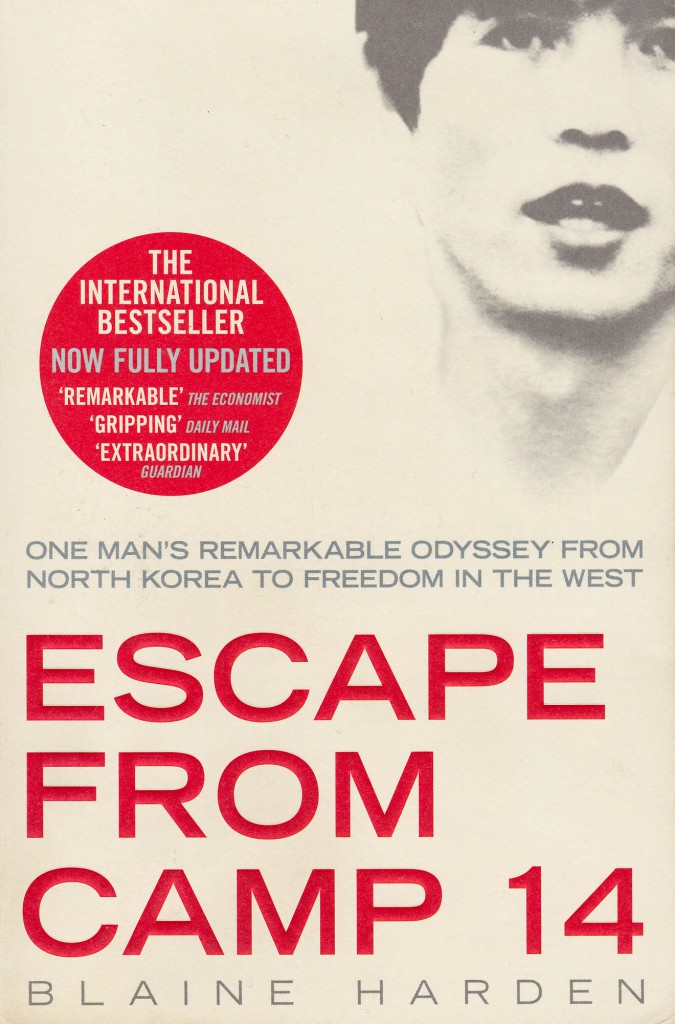This is a continuation of the review posted earlier.
I have been thinking: if you do not understand why a sin is a sin, and why you are being punished for it, how then would you understand forgiveness?
If you tell me that I am being punished for something I did not do – an act or a crime which I do not even understand – then it would also be difficult for me to understand how I can be forgiven (or not) for it.
Early on in the book, the author Blaine Harden explains that Shin had never known life outside the camp, so he does not understand that there is another kind of existence where people are not ‘sinful’:
“Most North Koreans are sent to the camps without any judicial process, and many die there without learning the charges against them…Guilt by association is legal in North Korea. A wrongdoer is often imprisoned with his parents and children. Kim Il Sung laid down the law in 1972: [E]nemies of class, whoever they are, their seed must be eliminated through three generations.” [1]
Slowly, Shin learnt the reasons he had to suffer the daily abuse from the prison guards [2]:
The guards taught him and the other children in the camp that they were prisoners because of the ‘sins’ of their parents.
What were these ‘sins’?
“The unforgivable crime Shin’s father had committed was being the brother of two young men who had fled south during a fratricidal war that razed much of the Korean peninsula and divided hundreds of thousands of families. Shin’s unforgivable crime was being his father’s son.” [3]
On one occasion when Shin’s scars oozed blood: “Shin dared not complain. His teacher had warned him that he would need to work harder than his classmates to wash away the sins of his mother and brother.” [4]
The reason that Shin continued to be incarcerated in Camp 14 was not only because of his uncles’ desertion but also because of his mother’s and brother’s attempt to escape (they were caught and executed).
How could Shin redeem himself?
“The children were told that while they should always be ashamed of their traitorous blood, they could go a long way towards ‘washing away’ their inherent sinfulness by working hard, obeying the guards and informing on their parents.” [5]
“As much as he believed in anything, he believed the guards’ preaching about original sin. As the offspring of traitors, his one chance at redemption – and his only way of averting starvation – was hard work.” [6]
“Shin was asked to spy on his fellow workers. The superintendent called him to his office and said that to wash away the sins of his mother and brother, he had to report wrongdoers.” [7]
It goes without saying that Shin could never do enough to expunge the sin from his blood. The brutal punishments meted out to the prisoners are truly horrendous, although thankfully the descriptions in the book do not go into great or graphic detail.
Everyday, we read about such evil and injustice in the news, not only of the regime in North Korea, but in other countries where there is civil war or where one community dictates the lives of another community. One of the most frequently asked questions, even by people who profess to have no religious faith, is this: where is God in all of this?
Here is the challenge set by Christianity Explored, which takes a look at the claims that Jesus makes.
The very first question it asks is this:
If you could ask God one question, and you knew it would be answered, what would it be?
This question troubled me: I asked about a hypothetical tribe somewhere in the middle of the jungle who had never heard of God. If salvation could only come from being forgiven by God, through Jesus, what then of their hope of salvation?
I didn’t like being so cynical, after all what is impossible for man is definitely possible for God.
However, in reading Shin’s story I realised I wasn’t so far out in my imagination of an existence where there is no consciousness or an idea of a higher entity. In the grim reality of a prison camp, “Love and mercy and family were words without meaning. God did not disappear or die. Shin had never heard of him.” [8]
Later, in his new life in the South, “Shin began going to church on Sunday mornings, though he did not understand the concept of a loving and forgiving God.” [9]
This is not as strange as it sound: the only emotion Shin understood was fear. How do you find God when there is no possibility in your mind that something like salvation, either in a physical or emotional sense, exists?
Going back to the question posed by Christianity Explored, and having gone round in circles, one day I realised I had been barking up the wrong tree.
My question was about man searching for God, but the answer lies in God searching for man.
How Shin managed to think of leaving the camp when the only future he understood was either life imprisonment or death, shows that even in the darkest of realities, miracles can happen. It involves an escape and it involves a rescue. I shall write about this in a future post.
* Escape from Camp 14: One man’s remarkable odyssey from North Korea to freedom in the West by Blaine Harden, published by Pan, ISBN 978-0330519540.
All references are from the book:
[1] page 10
[2] page 25
[3] page 66
[4] page 81
[5] page 25
[6] page 84
[7] page 112
[8] page 8
[9] page 195
